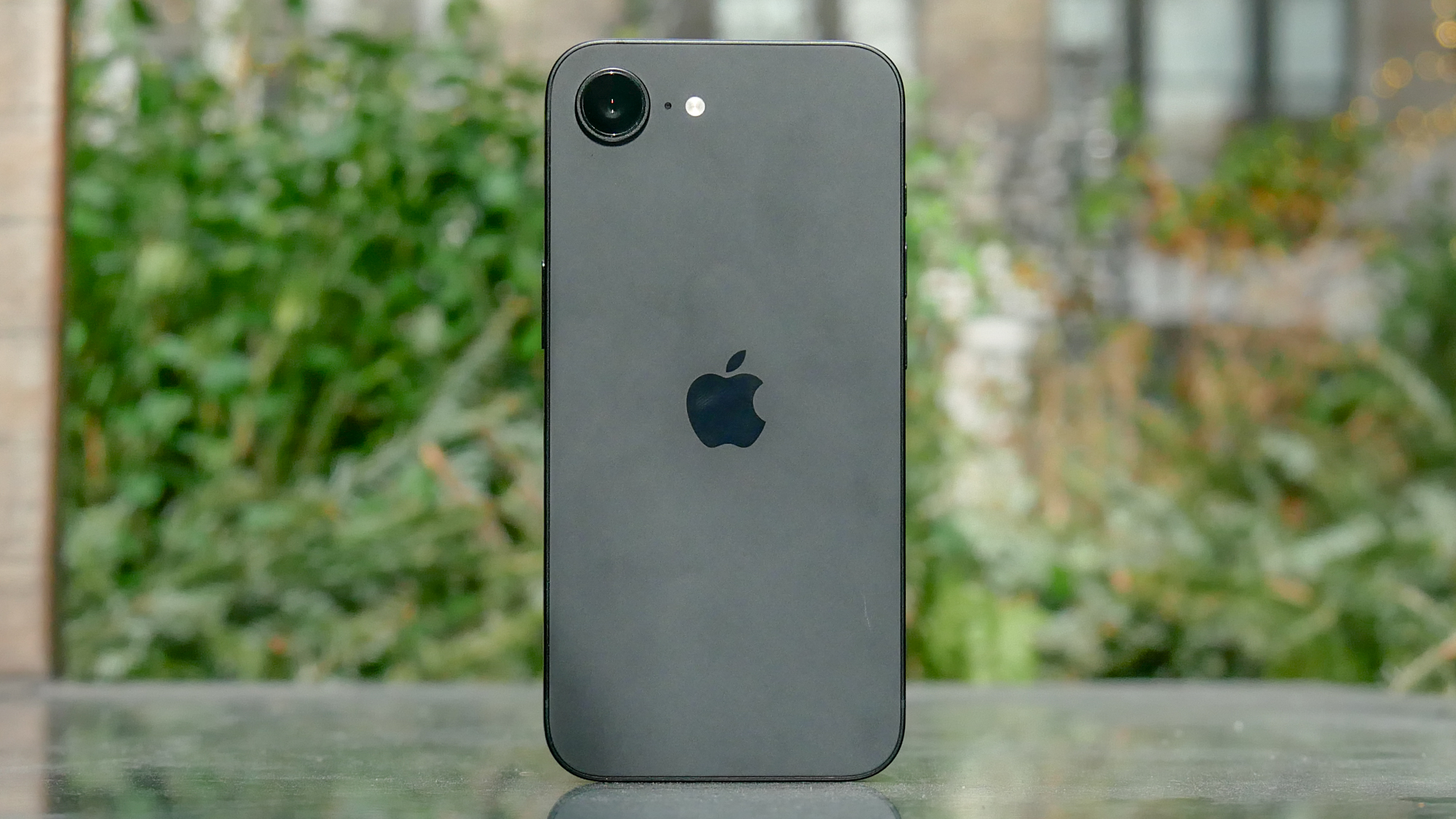With the Gemini PDA, the '90s (and Keyboards) Are Back
Planet Computers' Gemini handset proves everything old is new again by reintroducing a '90s-style PDA to the smartphone age.
There is a certain kind of person who is nostalgic for the personal digital assistants of the 1990s. A person for whom touch-screen keyboards are difficult to use, and for whom even the physical QWERTY keys on a BlackBerry Keyone aren't big enough. A person who wants the ability to dual-boot an Android phone to run Linux.
That person will adore Planet Computers' Gemini PDA, an oversize Android smartphone with a clamshell case that opens to reveal a giant (by phone standards) physical keyboard.

The Gemini may be too niche for most people. In fact, even PDA fans may use the Gemini as a secondary device instead of as their main smartphone, which is why Planet Computers is making two separate models: a 4G option for $599, and a Wi-Fi-only version for $499. "We see this as a pocket PC and phone," said Janko Mrsic-Flogel, Planet Computers CEO, during a recent demo in New York City.
But after some hands-on time with the device, we think the Gemini may be a better pocket PC than it is a phone.
Retro hardware meets modern life
If the Gemini reminds you of the Psion Series 5, a PDA circa 1997, that's because a few of the key players behind that device had their hands in the Gemini's creation. If you've never heard of the Series 5, then the Gemini seems wholly unique — there hasn't been a device on the market like this in years.
MORE: The Most Anticipated Smartphones
At 6.75 x 3.12 x 0.59 inches, the Gemini is slimmer than the Series 5 and would most resemble an outdated Android phone if you removed its keyboard. But its shared DNA with the Psion PDA is unmistakable. The keyboard is identical, complete with full-size cursor keys, which is a point of pride for Mrsic-Flogel.
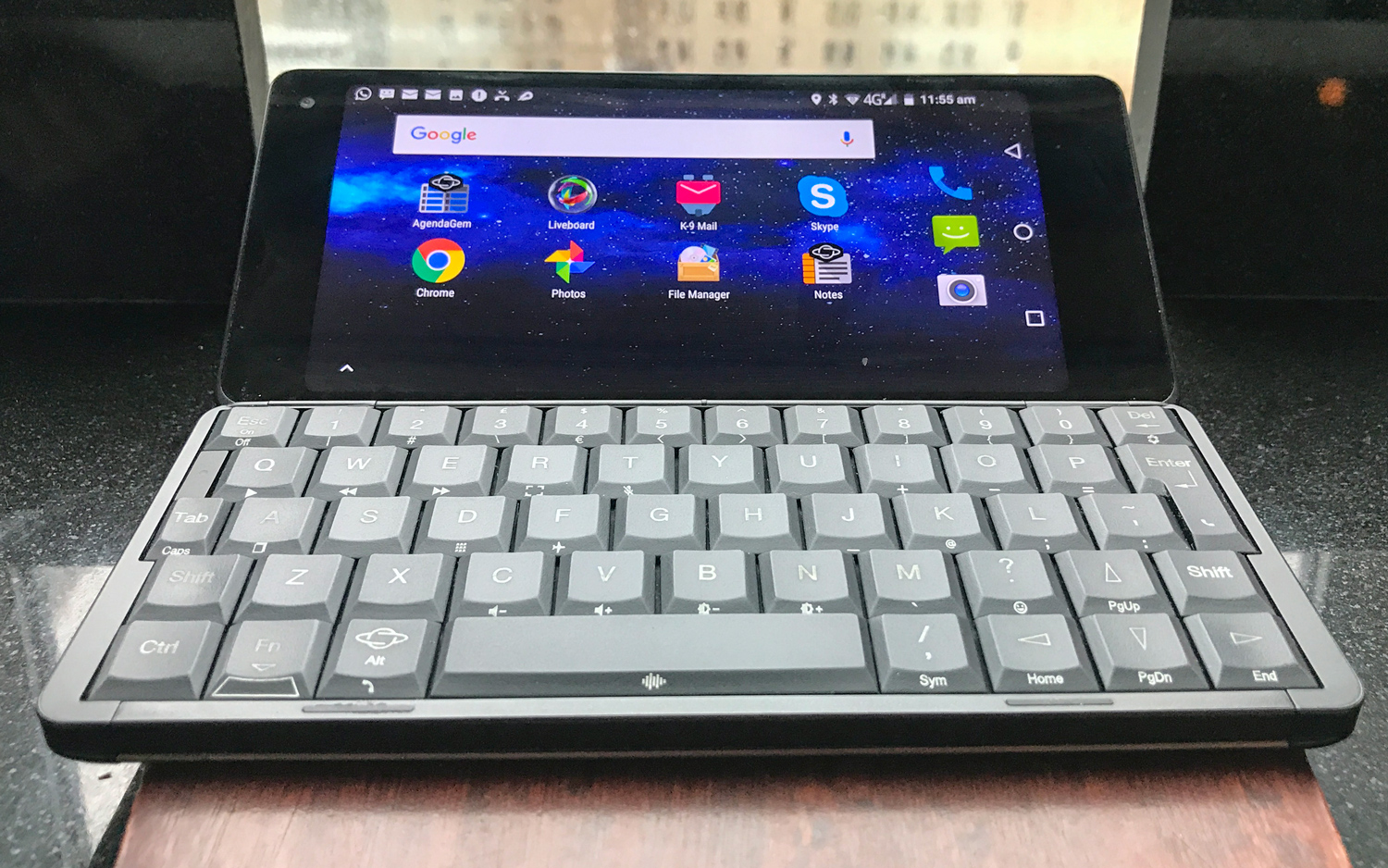
Planet Computers redesigned the keyboard five times to perfect it, and in my hands-on time with the device, the key travel felt more satisfying than typing on my 2017 MacBook Pro. The key caps on the Gemini are removable and the mat beneath them replaceable, so "if the keyboard fails it's not like the device is gone," Mrsic-Flogel said.
The cursor keys are useful for navigating around an app such as Excel, where you need to toggle between cells to enter information. I have no need to ever work in Excel on a smartphone, but I'm sure the Gemini's keyboard would make the lives of people who do easier.
You won't be able to use the 11.28-ounce Gemini one-handed, making it more like a pint-size laptop than a phone. But the device rests at an angle, courtesy of a patented hinge, for easier screen viewability. It's difficult for me to read emails on my iPhone flat on the table while eating breakfast, but on the Gemini, that would be a piece of cake.
From stylus to touch screen
The 5.99-inch full-HD LCD touch-screen display sports an 18:9 aspect ratio, but steers clear of modern smartphone design by embracing ultra-thick bezels on both top and bottom (or left and right, if you're using the Gemini in landscape mode to complement the keyboard). That's a tactical decision rather than an aesthetic one. The bezels house the connectivity components, such as a Wi-Fi chip and LTE modem, as well as speakers for phone calls and magnets to keep the clamshell closed.
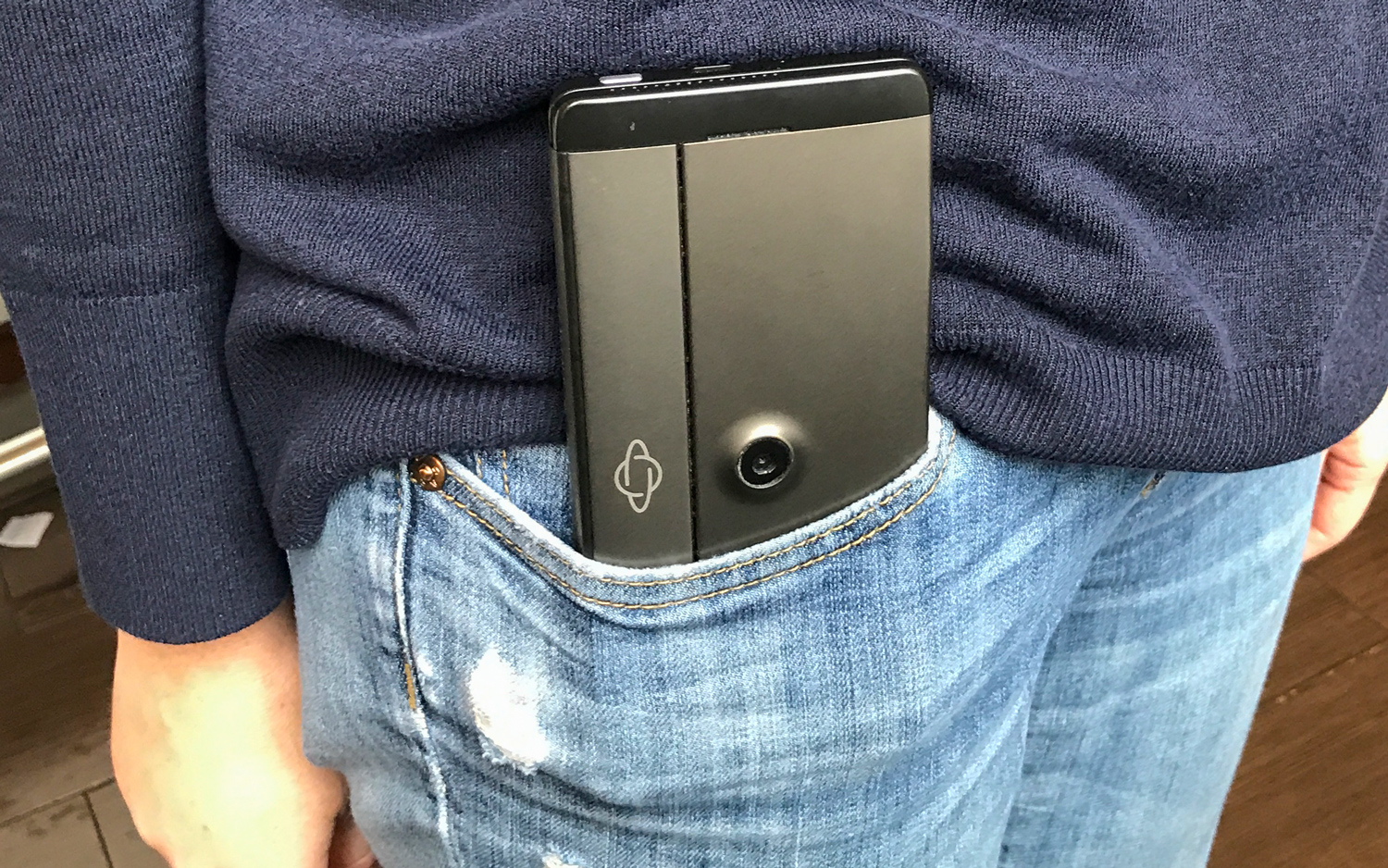
But there's a downside to this design decision. An edge-to-edge display would help make the Gemini feel like a truly immersive 21st century PDA rather than a nostalgic throwback to the pre-smartphone era.
Fortunately, Planet Computers upgraded the PDA display in the 20 years between the Psion Series 5's launch and the Gemini's debut. The Psion required a stylus to navigate, whereas the Gemini's touch-screen display is similar to any midrange Android phone on the market. The Gemini did keep the Psion's app dock on the lower rail of the display, but unlike the Psion's dock, the Gemini's bar disappears and can be called up again by pressing a key marked with a planet icon.
PDA pros and cons
There are a few benefits and disadvantages that make the Gemini a perfect device for some people, even if it's not at all useful for most.
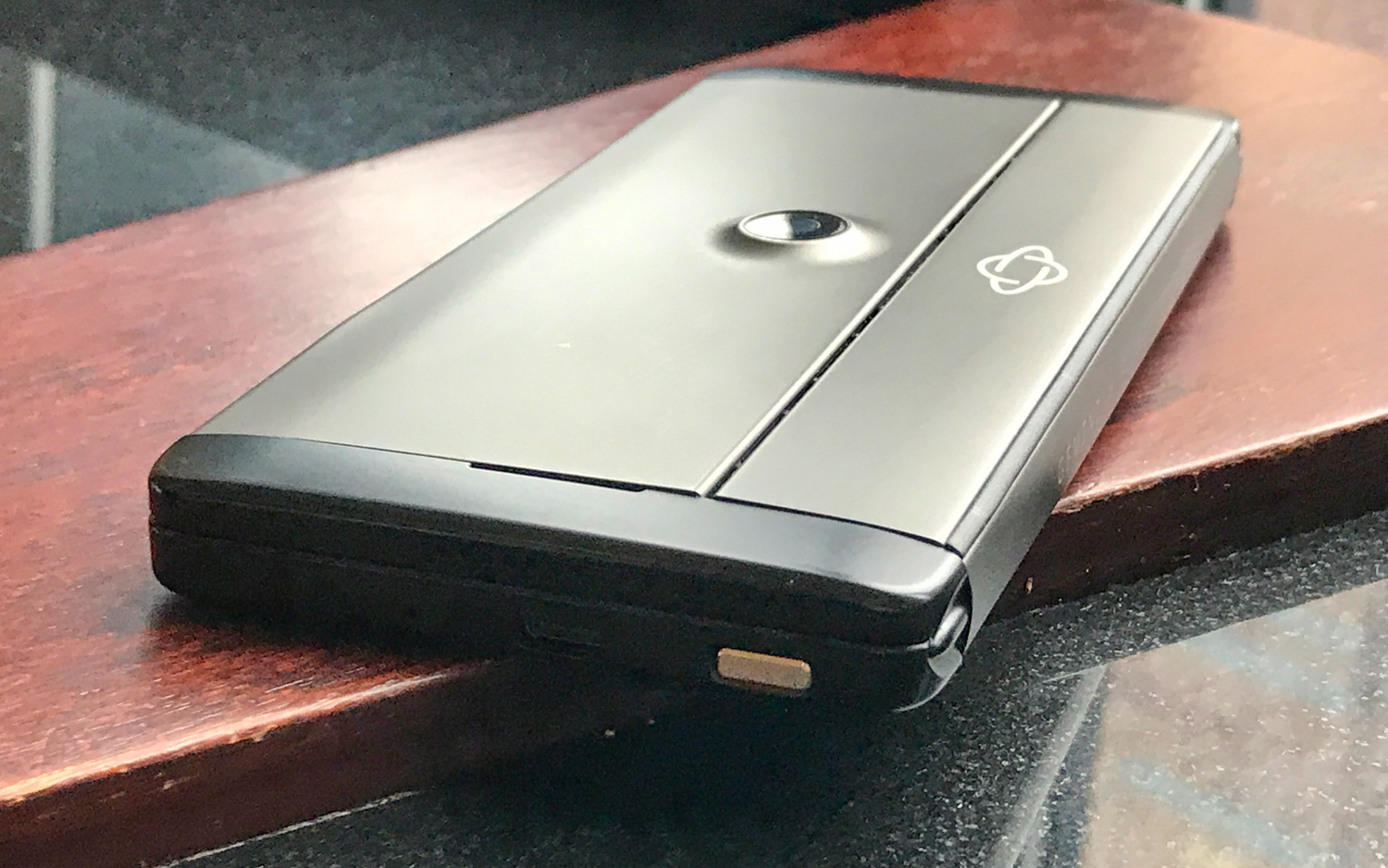
The perks for large corporations are clear. The Gemini supports VMware Horizon View, which gives you access to your desktop from your handheld. IT administrators can gain systems access, thanks to the Gemini's Ubuntu dual-boot option, which makes it an ideal device for enterprise environments. Planet Computers sells a $40 USB-C-to-HDMI accessory, so you can plug the Gemini into an external monitor. The device has two USB-C ports, so you can even plug in a USB-C mouse. (An additional $45 USB-C add-on hub makes the Gemini even more useful.)
The Gemini also packs in a gigantic 4,420 mAh battery, which isn't easily removable but is replaceable.
But then there are drawbacks for people who also use their smartphones as, you know, phones. Althoughyou can take calls with the clamshell closed using a dedicated hardware button on top of the device, you can't see who's calling. The Gemini has LED lights that flash red for incoming calls, and Planet Computers is planning to let buyers assign colors and combinations to specific contacts in the future. That should help mitigate the "Who’s calling me?" problem, but you can't see any other incoming notifications with the phone closed the way you would with a smartphone.
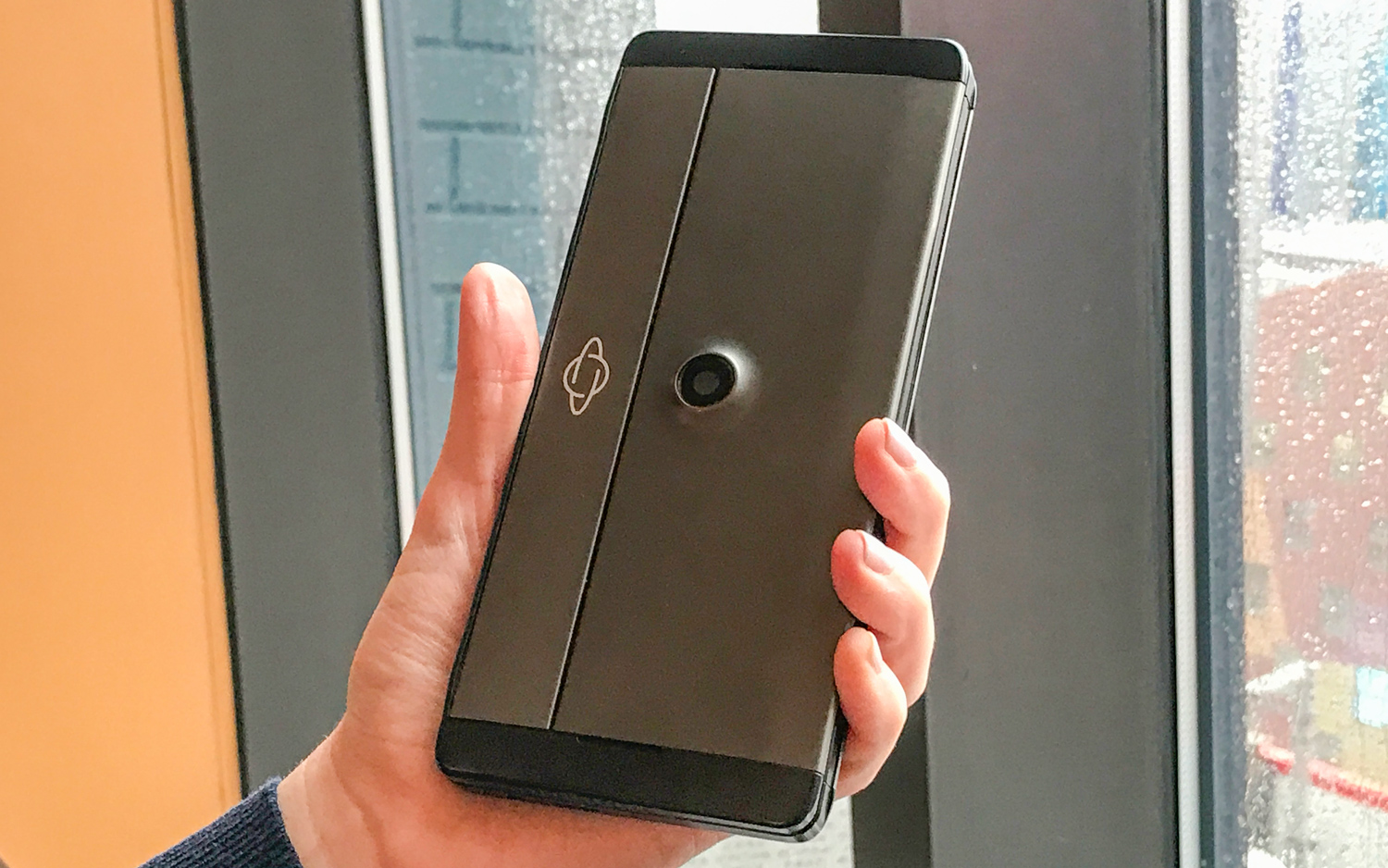
The Gemini sports a front-facing camera for taking video calls, but a rear camera is only offered as an additional $49 accessory. You have to do a bit of surgery to install the camera lens with a Planet Computers-provided tool, and even then, the 5-megapixel lens isn't exactly competitive with even the cheapest Android phones on the market today. The smartphone pulls double-duty as the primary camera for most people, and that's a task the Gemini just isn't up to.
Availability
The Gemini PDA is available to order through Indiegogo. The device has already shipped to early backers, with the next wave of shipments starting in May. The Gemini, which works with both GSM and CDMA networks, has been tested on T-Mobile, AT&T and Verizon, but not Sprint. Planet Computers is in talks with U.S. carriers and retail chains to sell the device in stores, but there's no timeframe for retail availability at the moment.
We plan to test out the Gemini and live with it for a while to see if it can replace your daily driver, or if PDAs should finally be put out to pasture. Stay tuned for a full review.
Image Credits: Tom's Guide
Sign up to get the BEST of Tom's Guide direct to your inbox.
Get instant access to breaking news, the hottest reviews, great deals and helpful tips.
Caitlin is a Senior editor for Gizmodo. She has also worked on Tom's Guide, Macworld, PCWorld and the Las Vegas Review-Journal. When she's not testing out the latest devices, you can find her running around the streets of Los Angeles, putting in morning miles or searching for the best tacos.
-
pradhanbalter As an early supporter of this product on Indiegogo, I can tell you that I would not buy one again. It seemed like the folks behind this product were legitimate, but my Gemini hasn't worked since I received it, and I have heard barely a word from their support. It MAY be a future legitimate product, but I would wait until they work out their kinks. On the other hand, it may simply be another Indiegogo campaign that makes a lot of upfront money only to disappear a few months after initial rollout. I mention this here because I trust Tom's Guide, and at this point, support of this product is mis-guided.Reply
